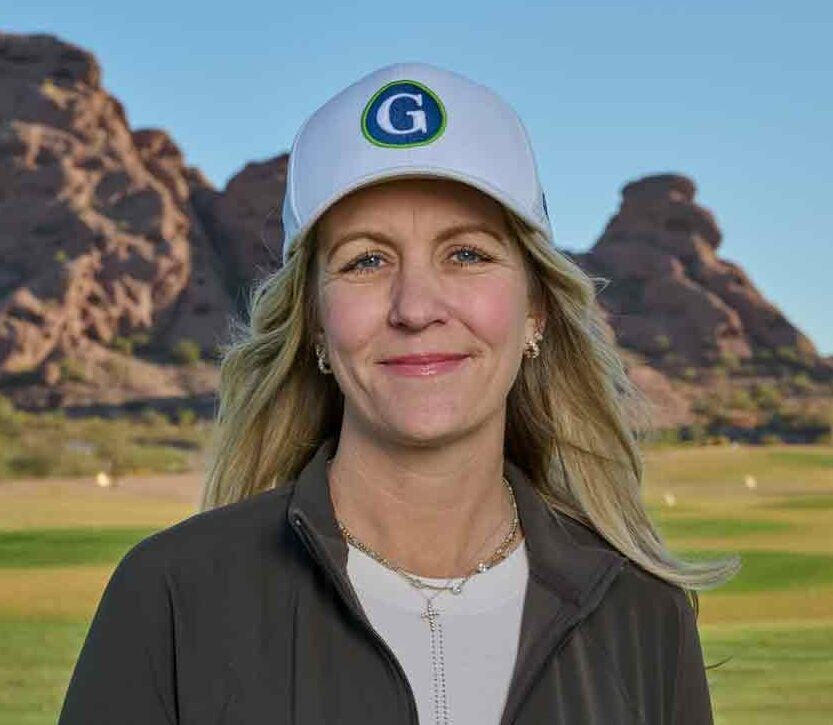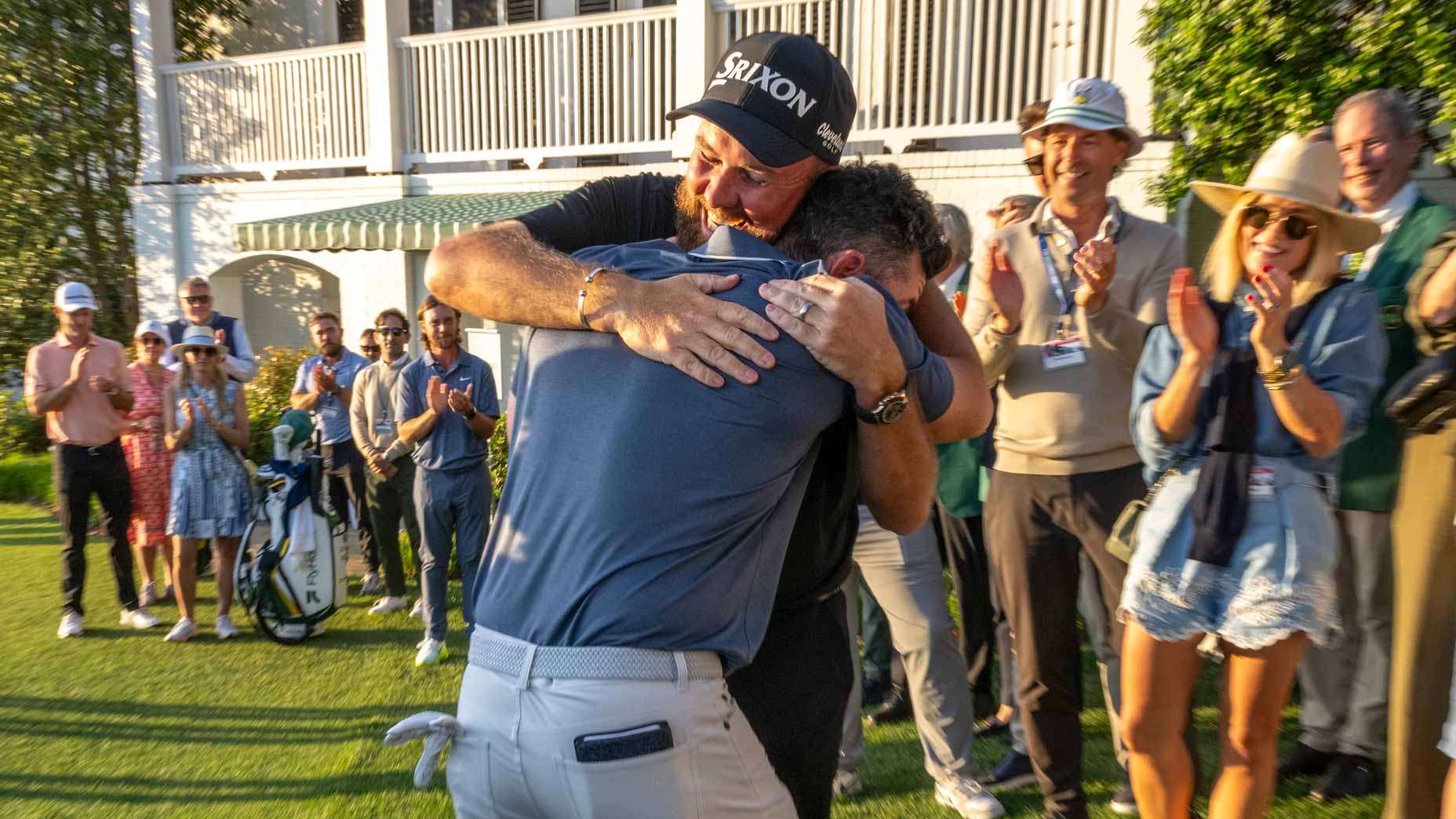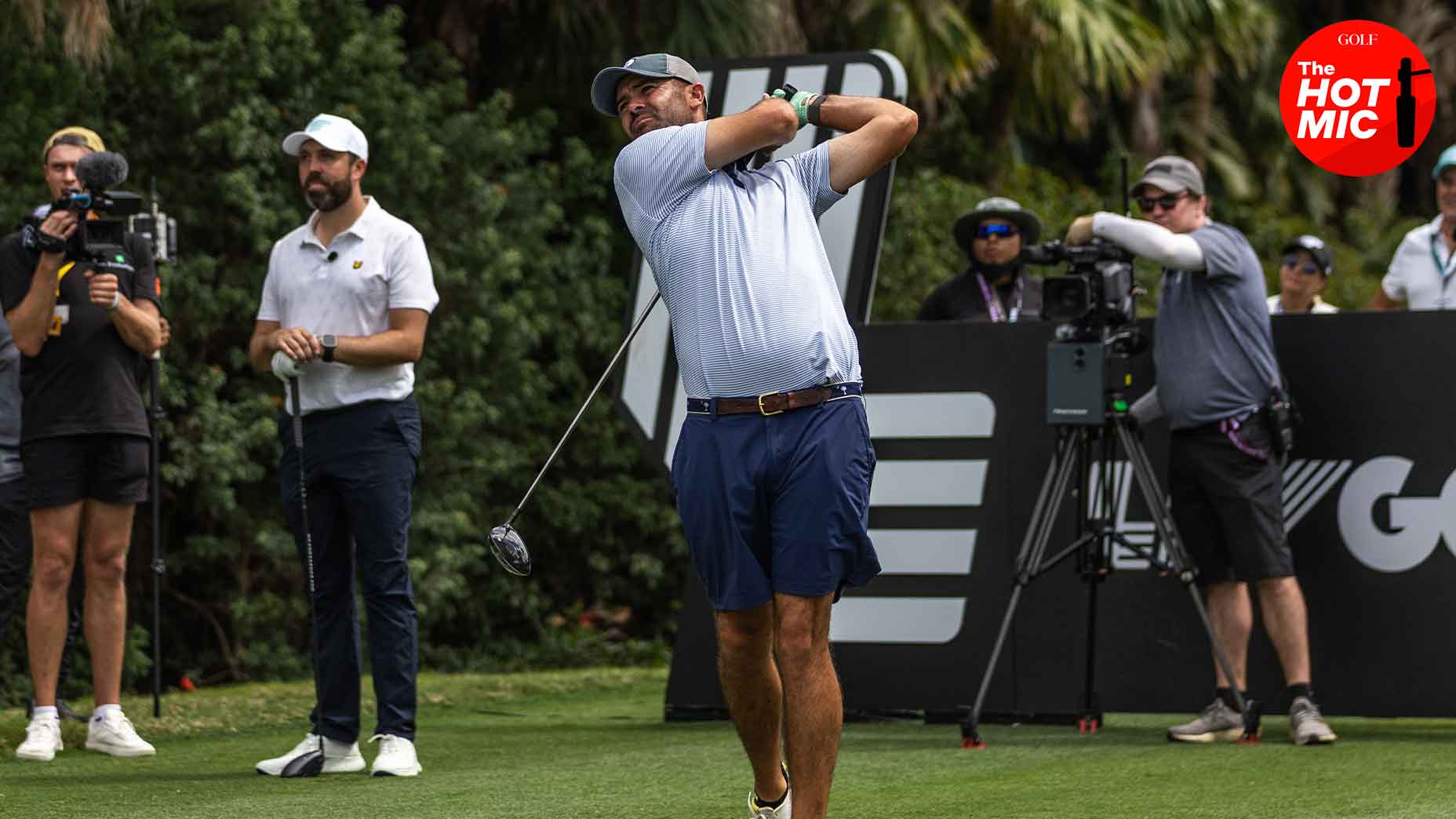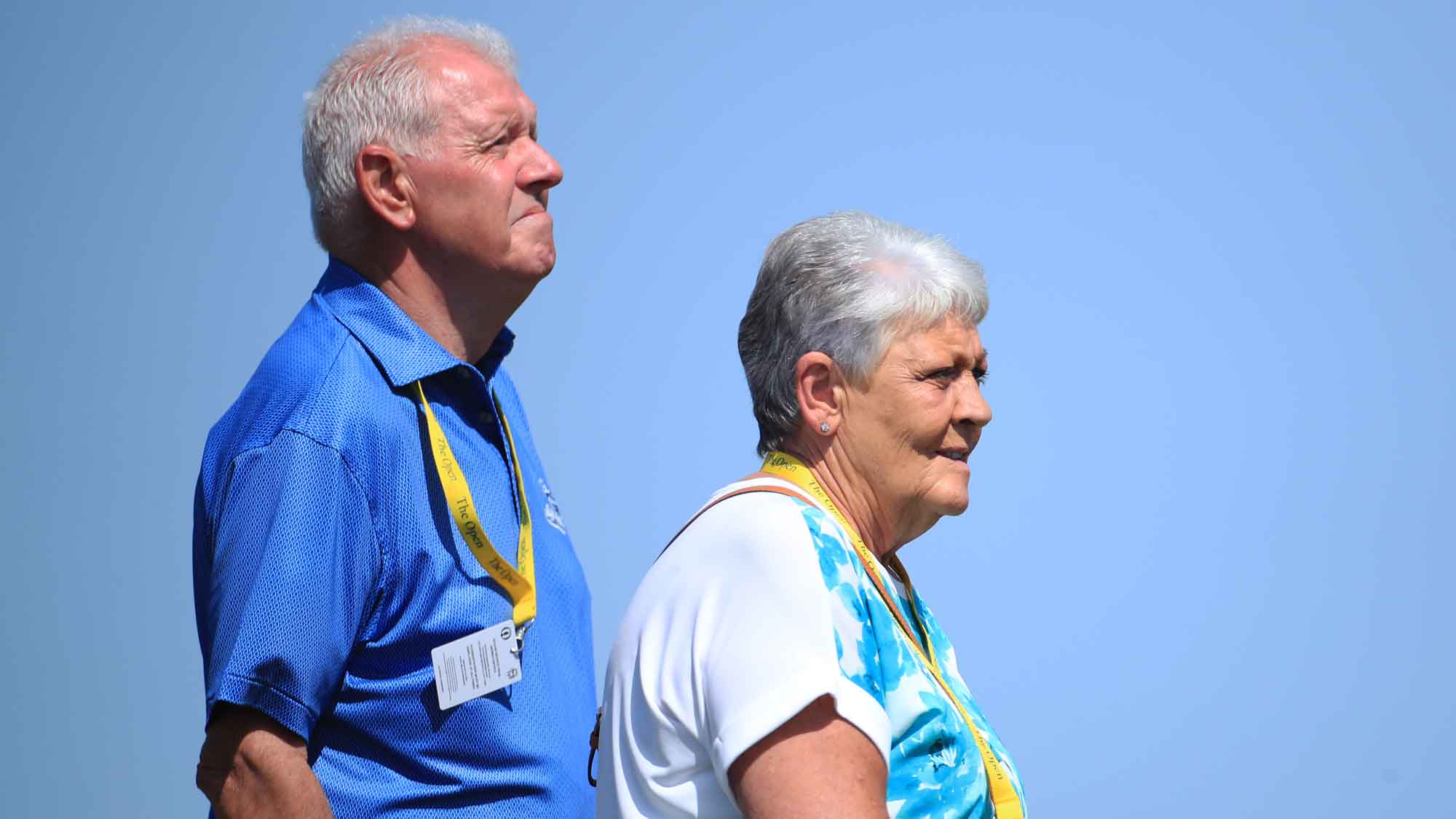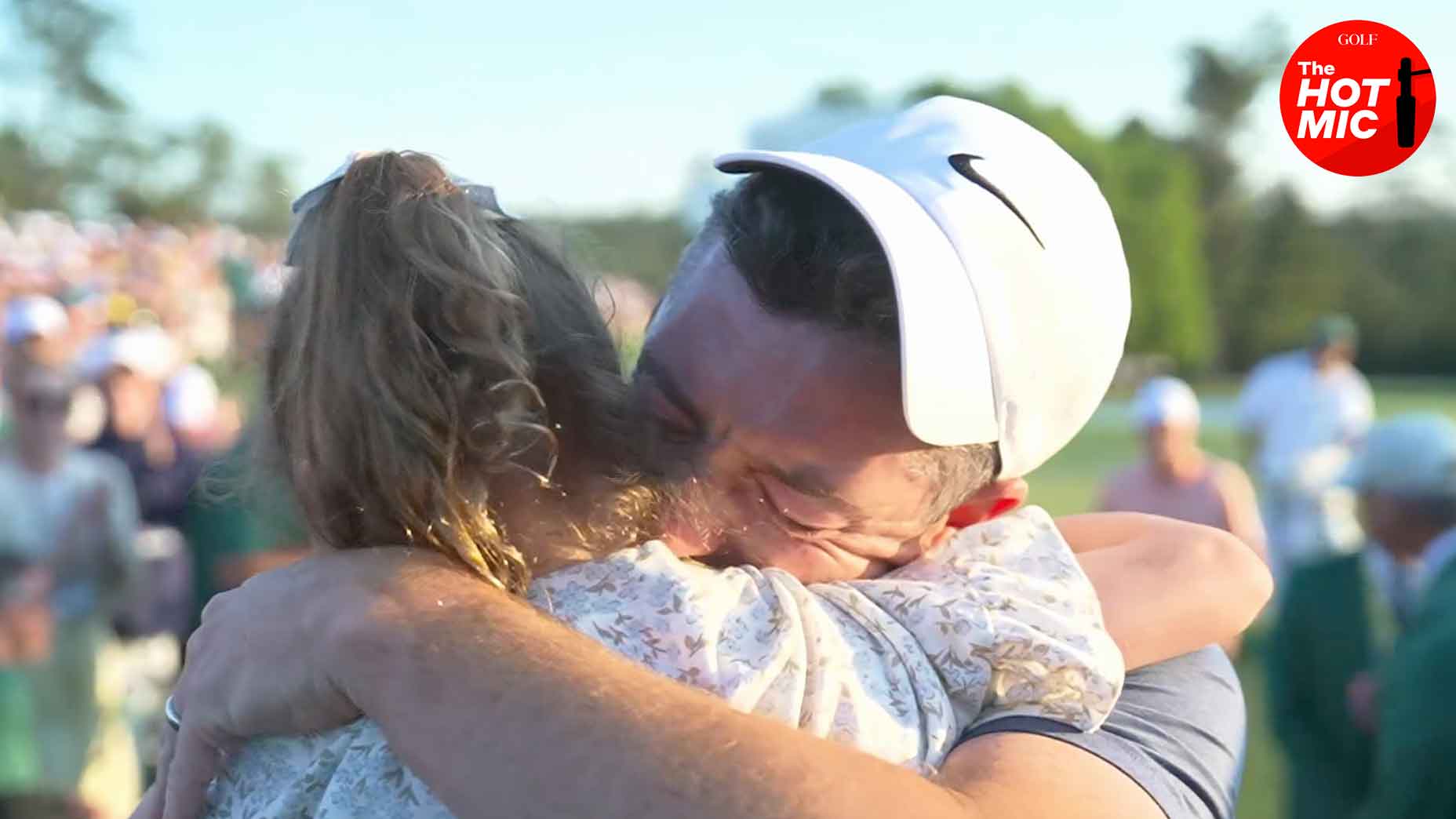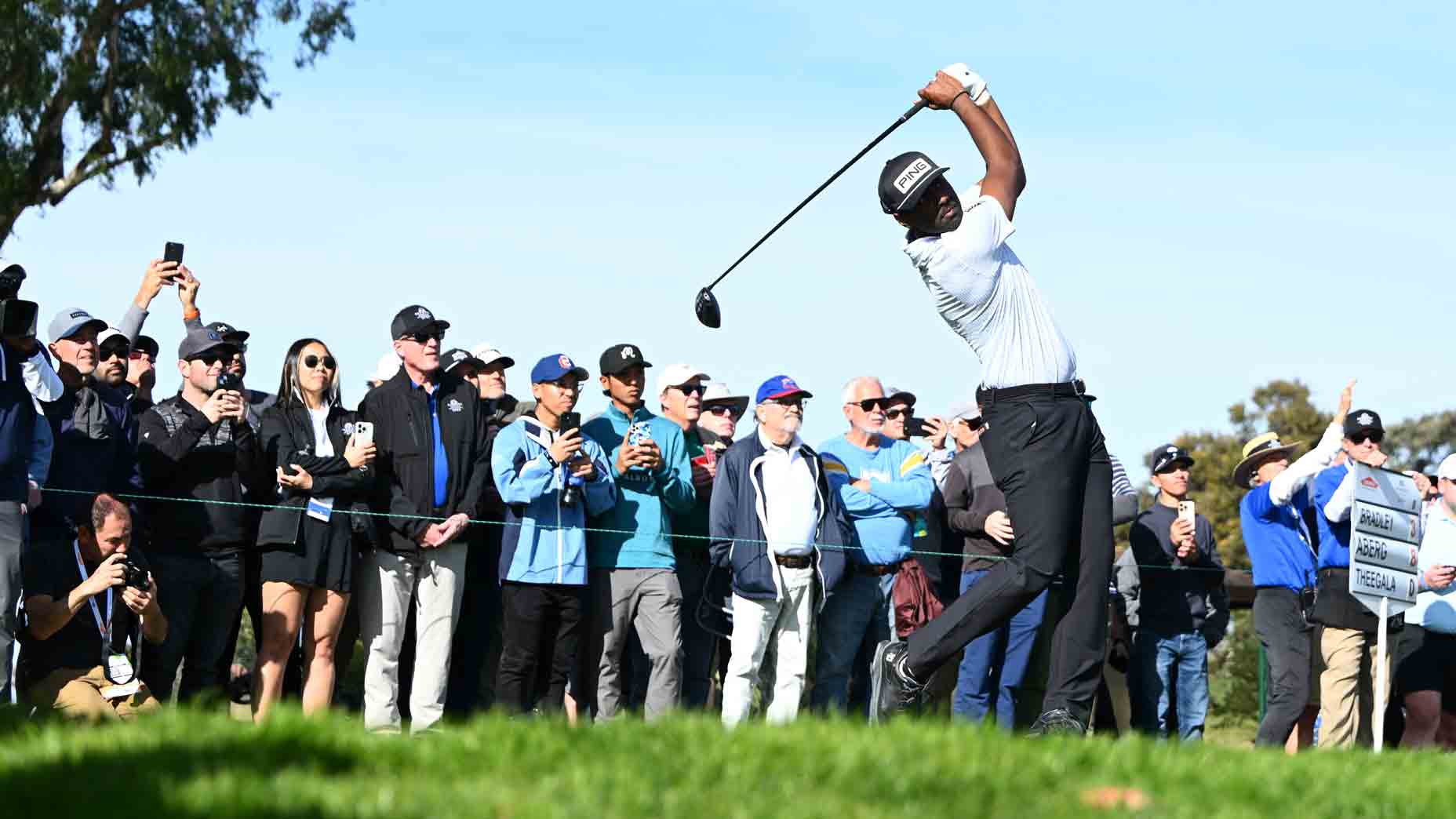[This interview with Aaron Wise was conducted before he won the AT&T Byron Nelson on Sunday, which was the 21-year-old’s first PGA Tour victory.]
GOLF.com: You were born in Cape Town, but moved to the U.S. as a 3 year old. Who did you grow up idolizing?
Aaron Wise: It was two for me. Tiger and Ernie, for sure, especially with my dad. He was a big Ernie fan. Especially when they dueled it out like they did in Hawaii that one year, and stuff like that. Those are definitely my two idols growing up.
Have you ever met Gary Player?
I have not met Gary Player. He tweeted at me once, though. Fun fact. That was pretty sweet.
What did he say?
I don’t even remember anymore. But I just remember thinking it was the coolest thing ever.
Congratulations on your @WebDotComTour victory @aaronwise_. Brilliant to hear you have secured your @PGATOUR card! Now work even harder. GP pic.twitter.com/8NACuCWxQu
— Gary Player (@garyplayer) June 19, 2017
You were a pre-law student at Oregon. When did you decide that the golf course would be your office, as opposed to a courtroom?
Probably wintertime my sophomore year. I went to Australia to play in a Team USA event and played really well, won there, and I think that was my moment where I realized I could take the game further. And I didn’t have much of a junior golf profile, I didn’t play much. I didn’t travel much. I just didn’t have the money to do it. Obviously, Oregon allowed me to play on a more national stage. And then for me to go on a trip like that, overseas, and do what I did, and then come back and end my sophomore year with, I think it was five wins, it seemed like the right time for me to leave.
Declaring yourself as pre-law means you probably had a pretty ambitious course schedule. As a Division I athlete, you could have chosen an easier path, but you didn’t.
No. A lot of people go with the easier path, and I really didn’t want to. But the way to combat that is to do something you love so it doesn’t feel like you’re putting so much time and effort into it. It’s more like you want to do it. And I didn’t really know what I wanted to do going in, and kind of stumbled into a criminal law class my freshman year and absolutely loved it. And just took it from there. Took another one and another one. And just realized, even though it was so much reading and so much work, it didn’t feel like it. And that was the path that I was going to go down.
Are you still a big reader?
Yeah. I love reading. I love learning in general. But especially about law and stuff that I think could apply to everyday life. That’s where I’d love to focus.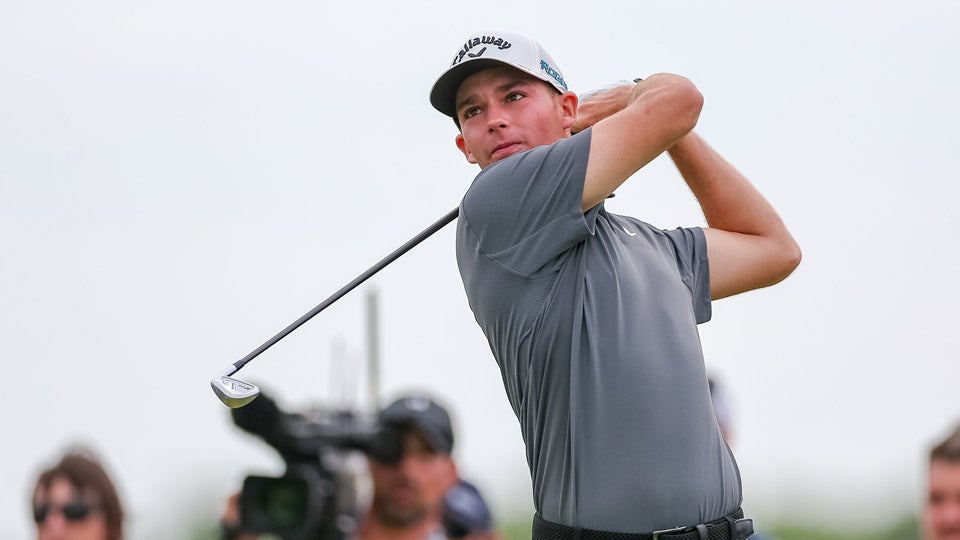
You won on the Mackenzie and the Web.com tours before making the jump to the PGA Tour. Have you seen, in retrospect, a real progression in your game?
Absolutely. It’s kind of been crazy how fast it’s happened, and how almost seamlessly it happened. You sit down when you turn pro and you lay out a plan: in an ideal situation, how would it go? And for some reason, I followed it exactly. And it’s worked out.
You’re just climbing the ladder, one by one.
Oh, yeah. This is what we planned on, and I’m here. And oh, I need to play well in this event, and I played well at the right time. And it’s truly been a blessing. Obviously, there’s some luck involved, but a lot of skill. And it’s worked out perfectly. But it’s crazy to see how much my game’s grown, and how much I’ve grown just as a professional golfer. And that’s a little different to just being a normal golfer. There’s some extra stuff that goes into it. And it’s just a total different level of things you have to deal with. And I think I’ve become really good at it.
What has that learning curve been like? What are some of the things that have surprised you that you’ve had to figure out to do well, to be successful?
The traveling was the biggest thing for me, because even in college, you traveled for a 54-hole tournament. But you were gone for three or four days total, where now, I’m gone for a week for a tournament. And if you play multiple tournaments in a row, it can add up to a month on the road all of a sudden. And so, managing that. And I think the biggest part is just how much I’ve really learned about myself, you know? And really listening to myself, and when it’s time to take a break, or when it’s time to go out there and grind. And balancing all that. And it’s really something. You’ve got to listen to what you’re body’s telling you. And I think that’s what I’ve learned the most.
Do you ever feel guilty when you’re taking a day off?
Yeah. That’s the toughest part for me, because I’m that person. I just want to go out there, and I am a kind of a perfectionist in a way. And I just want to make sure things are ready for when I’m going to compete. And I can be the guy who spends way too many hours out there. But that’s where I put people around me on my team who can tell me, “Hey, look. You’re ready.” Because especially your first year into things, you just don’t know. And so to have people around you who have been there and done it and can tell you you’re ready, and you can calm down, and you can take it easy has been a big key for me.
Who are those people for you? Are they family members? Are they other tour pros?
Family, friends, coaches. My coach, Jeff Smith, has been huge. He’s been with me since high school days and has gone through it all with me. You know, agent, everybody. I really think I’ve assembled a great team. And they all have my best interests in mind. And it’s just been a great, great thing for me.
What would you say is the most nervous you’ve ever been on the golf course?
Most nervous I’ve ever been is probably the first couple holes of the U.S. Open, way back [in 2016]. That was my first event as a pro. So I got thrown in the deep end. But to step on that first tee, I’m always most nervous starting my rounds. If I’m going to be nervous, not really anywhere else. But the first hole, the first green in general. And that was definitely the most nervous I’ve ever been, is starting the U.S. Open as my first professional event. (Wise shot 74-76 and missed the cut at Oakmont.) 
How long did it take you to feel normal in that round?
Hole four maybe. And normally, it’s the first hole and it’s gone and I’m fine. But it probably lingered on to about hole four.
One of your recent tweets said, “Pace of play is a hot debate.”
It is.
Where do you stand on the issue?
Oh, it’s so hard. Obviously, everybody wants to play faster. No one likes waiting. And especially for the average golfer, five hours is just too much time for them to give up to play golf. But it’s so hard, because how do you put a shot clock up, and have it there for everybody? The resources would be out of control. I think we’ve got to find a way to speed it up. But I don’t know how. We’ve got to really work on that, making that more seamless, and not so confusing. Because I think there’s a big gray area. Because even now, when they time people, when do they really start the clock, and when does it end, you know? You don’t know. As a player, you don’t know. So I’m on the clock. I don’t know if he’s starting it as I get to my ball, when I pull my club out. How much time? There’s such a gray area.
Which club in the bag do you think makes the biggest difference for you?
My putter. I think that’s what I’m best at. I think I’ve grown. I don’t think that was the best part of my game two or three years ago, but now I’ve really worked on some good stuff with my coach. And it’s coming around. And I just feel like no matter how I hit the ball, I can rely on my putter no matter what. Everyone always says it’s a great equalizer, but now that it’s the strength of my game, I can really see that it carries me through a lot of tough times.

